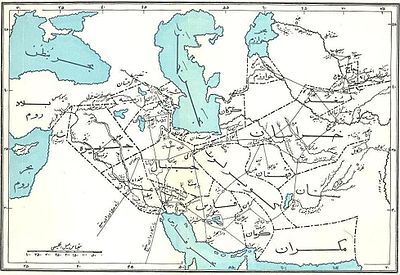Narrating and picturing a territory of Fars
Short introduction by Fursat Fursat traces the territory of Âsâr-i ‘Ajam through a series of conceptual and geographical delimitations that identify the object of the book, extracting it from larger regions and topics. The book opens describing Iran as “a vast country whose places had many names that changed over time and comprised Irâq, Khurn, […]


